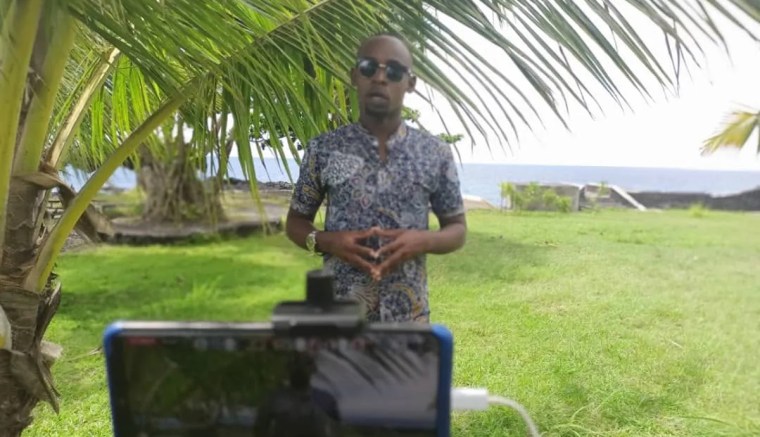Dakar, September 20, 2023—Comoros authorities should not oppose the appeal of four journalists convicted for publicizing sexual assault allegations at the country’s public broadcaster, Comoros Radio and Television Office (ORTC), the Committee to Protect Journalists said Wednesday.
On August 31, four Comorian journalists appealed their August 24 convictions for defamation and insult related to the publicizing of sexual misconduct allegations against unnamed leadership of the state-owned ORTC, according to the journalists, who spoke to CPJ over the phone, and a statement in support of the appeal by the National Union of Journalists in the Comoros, a local trade organization.
The charges and convictions by the criminal court in the capital, Moroni, followed a complaint by Hablani Assoumani, operational director of the ORTC, over “defamatory allegations of sexual touching” made during a January 17 meeting between Comoros President Azali Assoumani and journalists, as well as in subsequent media coverage of the allegations, according to those sources and a copy of the summons for one of the journalists to appear in court, which CPJ reviewed.
The journalists convicted include Andjouza Abouheir, vice president of the journalists’ union, and Toufé Maecha, former director of ORTC, who both made comments related to the allegations during the January 17 meeting; as well as Abdallah Mzembaba, a correspondent for Radio France Internationale, and Oubeidillah Mchangama, a reporter with the privately owned FCBK FM broadcaster, both of whom published reporting about these allegations, the four journalists told CPJ.
A court date for the journalists’ appeal has not been set, according to Saïd Mohamed Saïd Hassane, Mzembaba’s lawyer, who spoke to CPJ via messaging app.
“Convicting journalists for asking questions and reporting on sexual assault allegations sends a chilling message that promotes impunity for such abusive behavior. Authorities should not oppose the journalists’ appeal,” said Angela Quintal, CPJ’s Africa program coordinator, in Durban, South Africa. “Journalists have been crucial to exposing sexual misconduct in workplaces around the world. Comoros authorities should focus on investigating such allegations, not seek to deter reporters from holding those in power to account.”
During the January 17 meeting, Abouheir questioned the country’s president about allegations of sexual touching “by at least one man, a superior, on young women,” in return for promises of “promotions,” according to media reports.
Mzembaba told CPJ that after the meeting he reported for RFI on the allegations and the president’s response. That reporting suggested that the person accused is “a director of one of the national television departments.” On June 15, the Moroni court summoned Mzembaba to appear over that coverage, according to the summons that CPJ reviewed.
Mchangama similarly told CPJ he was being prosecuted for reporting the details of the meeting in a January 19 Facebook Live broadcast.
On June 22, the public prosecutor called for one year’s sentence, with a minimum of three months to be served in prison, and a one-year ban on the suspects from exercising their profession, claiming in the indictment that the speech and media coverage of these allegations had “tarnished” the country’s image, according to several reports.
On August 24, the Moroni court sentenced the four journalists to a nine-month suspended sentence and a fine of 150,000 Comorian francs ($US325) each for defamation and insult, according to news reports.
CPJ reached the secretary for ORTC’s general manager Mohamed Abdou Mhadji via messaging app, but he declined to comment. CPJ’s calls to the Comoros Ministry of Justice via the number listed on their Facebook page went unanswered.
[Editors’ Note: The first paragraph of this report was updated to correct a typo.]
